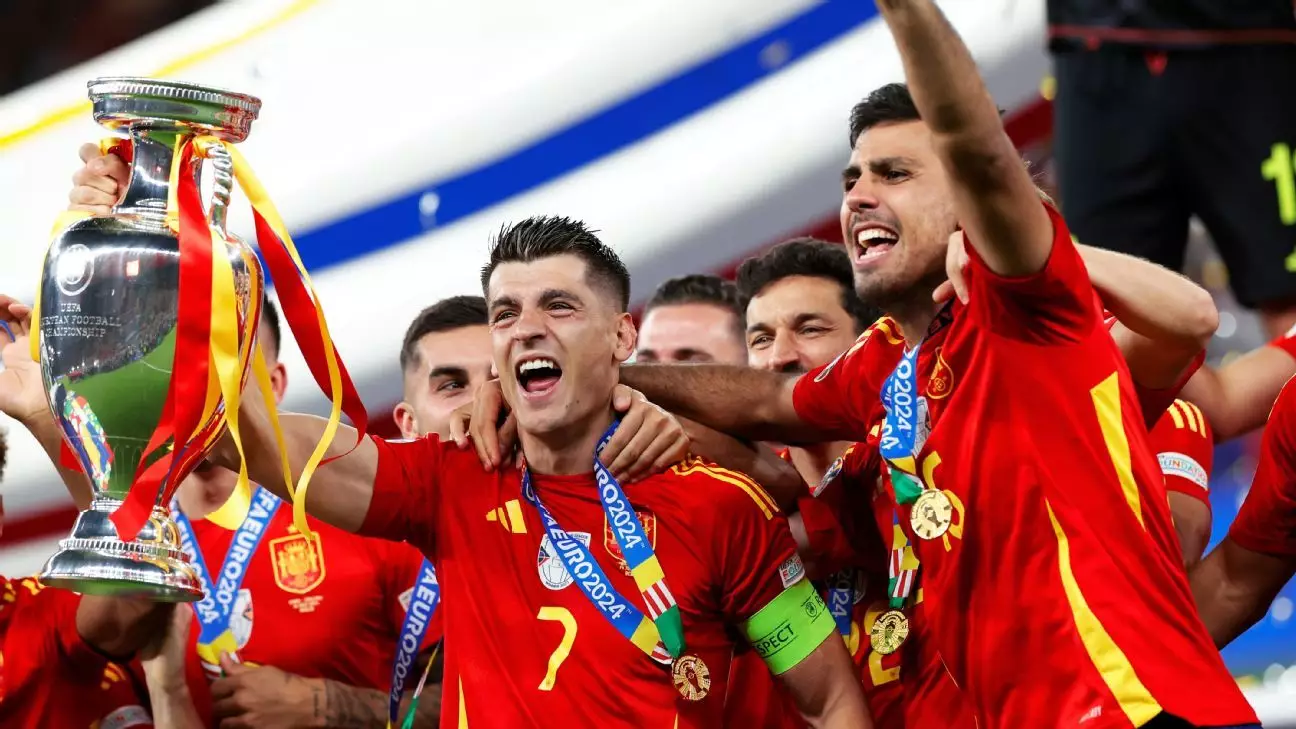The prospect of Spain hosting the 2030 FIFA World Cup is marred by growing anxieties regarding its football federation’s governance. The vacancy of the presidency in the Royal Spanish Football Federation (RFEF) poses significant concerns, especially as FIFA prepares to confirm Spain, alongside Portugal and Morocco, as the primary hosts during its Congress on December 11. Spain’s coach, Luis de la Fuente, has voiced his unease about the implications of lingering leadership issues, emphasizing that the fallout from such instability could be catastrophic. With FIFA’s insistence on self-governance free from governmental influence, the absence of a functional leadership structure in the RFEF begs the question: how will Spain navigate these turbulent waters before the crucial December deadline?
De la Fuente articulated a universal fear shared among stakeholders regarding the risk of Spain being stripped of its hosting rights. His remarks crystallized the severity of the situation, suggesting that those who remain indifferent to this potential crisis exhibit a lack of understanding of its gravity. The socio-economic ramifications of losing the tournament cannot be overstated; beyond the immediate setback in sporting prestige, the economic benefits associated with hosting such an event would vanish, impacting local businesses and tourism. This potential disqualification looms larger as the December meeting approaches, ratcheting up the pressure on the RFEF to expedite the election of a new president.
The void left by the suspended president Pedro Rocha, who faced a two-year sanction from the Spanish Sports Council due to severe infractions, has created an administrative vacuum. The current governance crisis not only complicates Spain’s bid for World Cup hosting but also raises concerns about the overall health of Spanish football. De la Fuente called for a restoration of “normalcy” within the RFEF, highlighting its necessity for building optimal conditions for hosting a World Cup. Failure to stabilize leadership could lead to deeper fractures within the federation, ultimately affecting national team performance and morale.
Amid these administrative challenges, De la Fuente also revealed his squad for impending Nations League matches against Denmark and Serbia. The team will notably miss the talented midfielder Rodri, who is sidelined due to a significant knee injury sustained while playing for Manchester City. His absence adds another layer of complexity to Spain’s preparations, reflecting an ongoing struggle with player fitness that can affect overall team dynamics. De la Fuente expressed optimism about Rodri’s recovery, illustrating his confidence in the player’s resilience. Nonetheless, the injury underscores the fragility of the squad in the midst of organizational instability.
As Spain stands on the brink of what could be a historic opportunity to host the World Cup, the federation must act swiftly to rectify its leadership issues. The importance of a cohesive and stable governance structure cannot be overstated; it is essential for ensuring not only the success of the World Cup bid but also the prosperity of Spanish football as a whole. The clock is ticking, and the world watches as Spain navigates this tumultuous period, hoping to emerge stronger in its quest for footballing glory.

